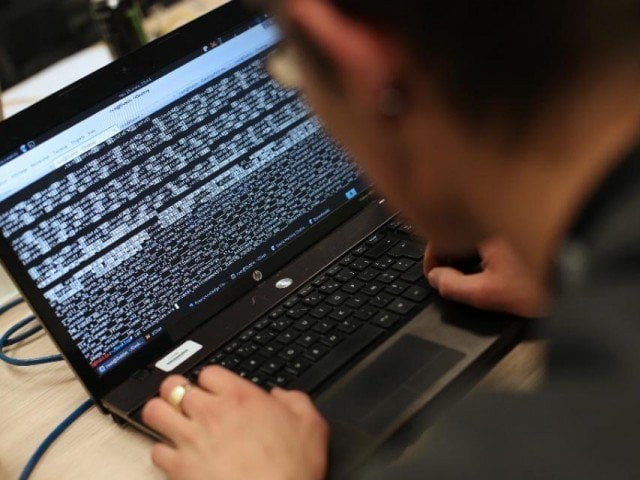Smart intelligence systems key to fighting crime
111, Local Eye software allow greater sharing of key information

Rep image. PHOTO: AFP
Undercover cops are a norm in almost every police structure of the world.
When it comes to maintenance of law and order in Pakistan in the context of its two-decade-long war on terror, the need for intelligence is greater than ever. Lahore Police had been using a primitive means of information gathering till the launch of the automated 111 Intelligence System and Local Eye Software.
Launched in 2017, the system focused on each police official providing useful information at least once a month. The policy has been described as “One information, one month and one police official.”
Under it, every police official/officer is required to share information about the working of the department or a crime every month.
DSP Intelligence Shamsul Haq Durrani described the development of the internal intelligence network as the backbone the system. He said officials were gathering information from the force itself and this provided a platform to officials to share their secrets rather than keep them buried deep inside.
Sub-inspector Omm-e-Kulsoom continued that officials had to face a lot of problems in expressing their minor issues to competent authorities due to bottlenecks as the police force is a strict hierarchical organisation. He added that they can now easily and fearlessly share information with a single click.
Special software was developed for the purpose in which at least 35,000 officials of the Lahore Police were registered. Sub-inspector Omm-e-Kulsoom said that they had stalked the data from Human Resource Management Information System (HRIMS) of Lahore Police and a number was later provided to share information.
A centralised control room was established and a DSP level officer was appointed as its head.
Decade of crime data shows consistent rise in rape
The specification of the software or the system ensured that the identity of the information sharer was kept secret. It could only be decoded by the SSP administration or CCPO himself. However, the staff at the control room would be able to point official or officer did not share information.
As many as 35,000 police officials were divided into different categories. Each category head was responsible to ensure that his/her subordinate sent information to the system regularly.
There were 18 categories under which an official/officer could send information. These included terrorism, land mafia, weapon, badmash, gambling, narcotics, criminal, suspect, illegal activity, law and order, smuggling, harassment, personal/welfare, complaint, suggestion, duty and security.
DSP Intelligence Shamsul Haque Durrani said that the system received over 0.15 million pieces of information and this was an encouraging sign. He also claimed that at least 80% of the officials shared information on a regular basis.
He said that the largest category was related to personal problems or welfare issues of the force. Durrani said that the force even received sensitive information too that led to the dismantling of some criminal networks. The information in the system helped commanders take some serious steps towards internal departmental accountability as well.
About the huge bulk of the information and its filtration process, the DSP said it was not possible to take action on every piece of information received. To this end, staff at the control room filtered the information keeping in view the 5Ws of who, what, when, where, why and other SOPs.
They also had automated filters in the system. The information would be forwarded to senior police officials after going through the filtration process for further action. The line of action was decided on the nature of the information. In a few cases, immediate action was taken. In others, the information led towards surveillance before action.
CCPO BA Nasir said that 111 intelligence systems helped Lahore Police drop the crime rate significantly. He said officers had been told to hold regular briefings about the system to keep the force motivated when it comes to sharing information about criminal activity. There is a great deal of focus on this initiative as it has proven to be practical and fruitful.
Published in The Express Tribune, August 10th, 2019.



















COMMENTS
Comments are moderated and generally will be posted if they are on-topic and not abusive.
For more information, please see our Comments FAQ